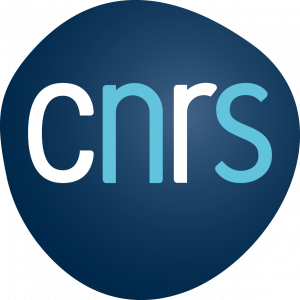Guillaume Bouffard, ANSSI (France)
Guillaume Bouffard defended his PhD in 2014 where he introduced a generic approach for protecting Java-based Smart Card against software attacks. Since November 2014, he works as expert in security of embedded systems in the Cybersecurity Agency of France (ANSSI). His research interests include physical & software attacks on embedded systems. Since October 2019, Guillaume is a associated researcher at the ENS’ Information Security Group.
Ronny Chevalier, HP Labs and CentraleSupélec (FR)
Ronny Chevalier is a French Ph.D. student in computer security. He is working for HP Labs and he is a member of the CIDRE team at CentraleSupélec. His research focuses on intrusion detection at the BIOS-level and intrusion survivability at the OS-level.
Chris Dalton, HP Labs (UK)
Chris Dalton is a Distinguished Technologist within the security research group, HP Labs which is the long-term research arm of HP. He is based in Bristol in the UK and has interests in computer architecture, pragmatic but strong security mechanisms and in particular exploring hardware & software co-design opportunities for security from a computer architecture perspective.
Jean-Christophe Delaunay, Synacktiv (France), @synacktiv
Jean-Christophe Delaunay is a security expert at Synacktiv, a company specialized in offensive security.
Ghada Dessouky, TU Darmstadt (Germany), @g_dessouky
Ghada Dessouky is a PhD candidate and research assistant at the Systems Security Lab, at the Technical University of Darmstadt, advised by Prof. Ahmad-Reza Sadeghi. Her research interests include hardware-assisted security architectures, secure microarchitecture design, and open-source hardware, with published results in top-tier security and hardware design conferences. Ghada has received her Master’s in embedded systems engineering from the University of Stuttgart and her Bachelor’s from the German University in Cairo, Egypt.
Sylvain Guilley, Secure-IC
Sylvain Guilley is General Manager and CTO at Secure-IC, a French company offering security for embedded systems. Sylvain is also professor at TELECOM-ParisTech, research associate at École Normale Supérieure (ENS), and adjunct professor at the Chinese Academy of Sciences (CAS). His research interests are trusted computing, cyber-physical security, secure prototyping in FPGA and ASIC, and formal / mathematical methods. Since 2012, he organizes the PROOFS workshop, which brings together researchers whose objective is to increase the trust in the security of embedded systems. Sylvain is also lead editor of international standards, such as ISO/IEC 20897 (Physically Unclonable Functions), ISO/IEC 20085 (Calibration of non-invasive testing tools), and ISO/IEC 24485 (White Box Cryptography). Sylvain has co-authored 250+ research papers and filed 40+ patents. He is member of the IACR, the IEEE and senior member of the CryptArchi club. He is an alumnus from École Polytechnique and TELECOM-ParisTech.
Ronan Lashermes, Inria
Ronan Lashermes is a research engineer at INRIA Rennes, in the LHS lab. Engineer from Grenoble-INP Phelma, after finishing a Ph.D. with the CEA and the UVSQ in 2014, he worked in a startup to develop physical attack benches for devices evaluation. He later joined INRIA and the LHS lab for a postdoc on fault attacks. He is interested in the security of embedded systems and hardware components and how the abstraction barriers (mathematics/software, hardware/software) can be exploited to compromise a device.
Ilia Lebedev is a PhD candidate at MIT’s Computer Science and Artificial Intelligence Lab and a leader in the area of trusted execution environments — a cause area for systemic change in cybersecurity. His work investigates secure containers, roots of trust, and systems for attested execution. As a teacher, he has worked on advancing accessible computer science education and outreach, as illustrated by his 2016 Hazen award for outstanding teaching. Outside of his academic career, he is a sailing ship captain, bartender, and casual dog photographer. He is presently in transition from his graduate studies to a position as chief scientist at gradient.tech, a Boston-area company offering trustworthy identity management and computing services.
Dr. Tamas K Lengyel, Intel (USA), @tklengyel
Dr Lengyel is Senior Security Researcher at Intel where he is focusing on developing scalable binary analysis systems. In his free time he works with The Honeynet Project as Chief Research Officer and also maintains a variety of open-source projects, such as the Xen Project Hypervisor, LibVMI and the DRAKVUF binary analysis system.
Yves-Alexis Perez, ANSSI (France)
Yves-Alexis works at ANSSI as head of the Hardware and Software architecture lab. He’s a Debian developer and member of the security team. He’s mostly interested in the hardware/software interactions (like between devices and the kernel), especially at the security level.
Michael Schwarz, Graz University of Technology (Austria)
Michael Schwarz is a postdoctoral researcher at Graz University of Technology with a focus on microarchitectural side-channel attacks and system security. He holds two master’s degrees, one in computer science and one in software development with a strong focus on security. He frequently participates in CTFs and has also been a finalist in the European Cyber Security Challenge. He was a speaker at Black Hat Europe 2016, Black Hat Asia 2017, 2018 & 2019, and Black Hat US 2018, where he presented his research on microarchitectural side-channel attacks. He authored and co-authored several papers published at international academic conferences and journals, including USENIX Security 2016, 2018 & 2019, NDSS 2017, 2018 & 2019, CCS 2019, and IEEE S&P 2018 & 2019. He was part of one of the research teams that found the Meltdown and Spectre vulnerabilities as well as the ZombieLoad vulnerability.
Arnaud Tisserand, CNRS Lab-STICC (France)
Arnaud Tisserand is senior researcher at CNRS in computer science in the Lab-STICC laboratory and head of the “ARchitecture and related CAD tools” research group. His research interests include computer arithmetic, computer architecture, applied cryptography, hardware design for applications in digital security and scientific embedded computing.




